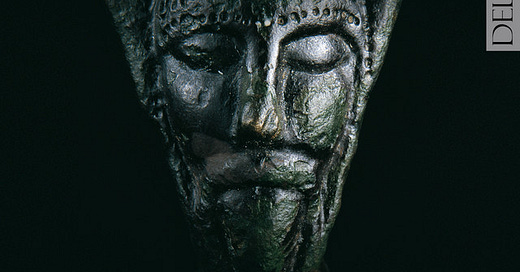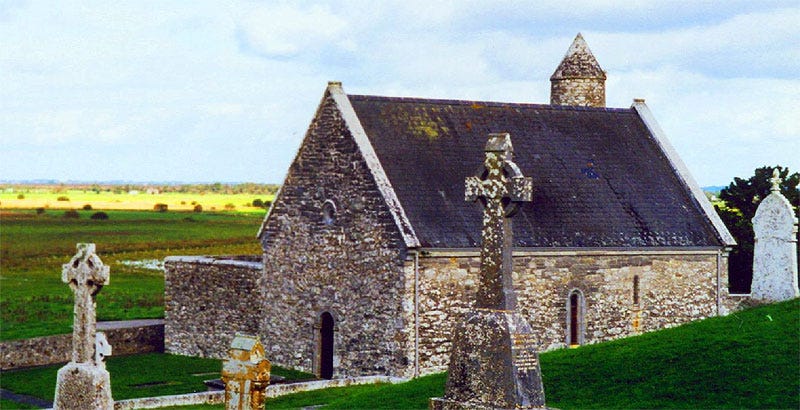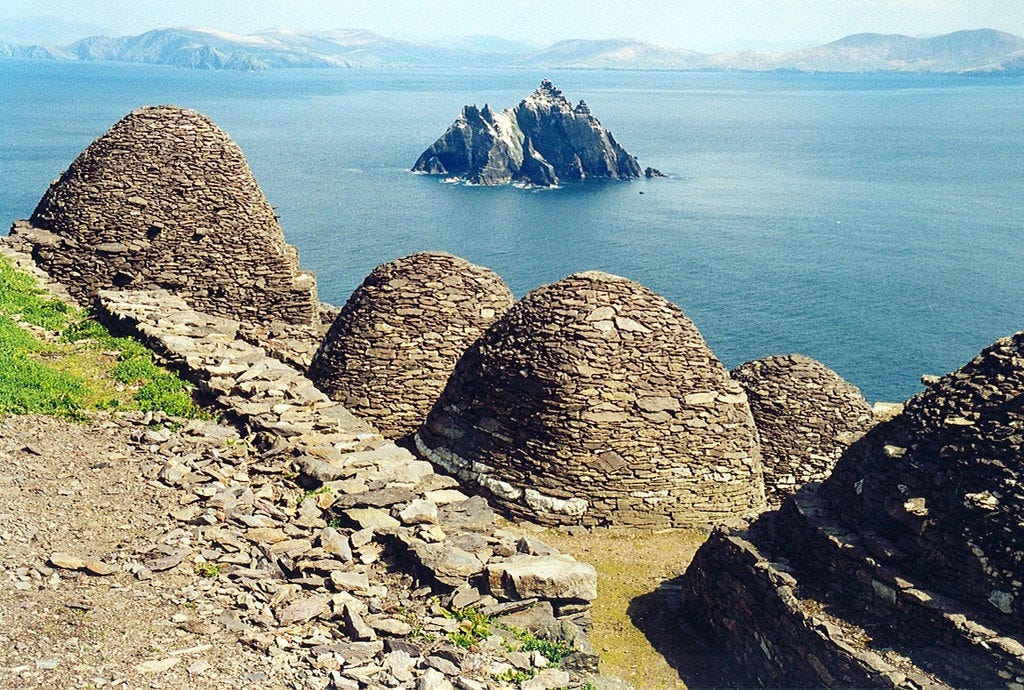EVERY GENRE PROJECT - October 16 - Celtic Chant
Genre of the Day - Celtic Chant
Album of the Day - In Praise of Saint Columba: The Sound World of the Celtic Church by the Choir of Gonville & Caius College, Geoffrey Webber & Barnaby Brown (2014)
Some sort of trend about interpreting ancient wisdom and that which has been lost to the sands of time or displaced long ago seems to be emerging recently on this column, between yesterday’s Canterbury scene and Sunday’s ancient Egyptian music. There are no certainties about the future, there’s little certainty about the past either; the process of history-making simply entails coalescing a set of happenings into conclusions and patterns that carry meaning. Perhaps I should take this as a reminder to simply do what I can in the present and surrender to the past’s and future’s inevitabilities, a pertinent message as I deal with a modern blitzkrieg of bureaucratically-induced stress this week.
Gregorian chant, which most often carries the weight of our understanding of medieval European music, obscures several well-established regional strains of liturgical chant traditions across the continent thriving before its takeovers. It reminds us of a European history that was lost over the rise of empires and nation-states, surviving in small pockets today like in the Basque country and, of course, in Celtic cultures. Irish culture has long run parallel to the dominant colonial forces of England and of western Europe in general. This makes it something of a countercultural hero today (expressed on Twitter as sometimes the side chick is the proud and gorgeous nation of Ireland), but this dates back hundreds of years. For example, one 7th-century dispute between the Celtic Church and the Papacy saw Ireland’s traditional lunar dating of Easter supplanted by Rome’s solar dating; forced concessions and the resistance they generated have long marked the country’s history alongside those of the other Celtic nations.
Celtic chant developed within the monastic traditions of the Celtic churches in late antiquity into the Middle Ages. Unfortunately, just as with ancient Egyptian music, these compositions were typically not recorded and have been lost to time as Roman liturgical chant overtook prior traditions. One imagines, though, that this singing was visionary and adventurous. Celtic monks were evidently capable of incredible feats, if the legend of Brendan the Navigator reaching North America hundreds of years before even the Vikings is worth its weight in Irish gold. Modern renditions typically rely on sparse sources and knowledge of what instruments were used at the time, which included the Celtic harp, horns, bells, and wind instruments. Hymns were written in both Latin and Gaelic languages, and old Gaelic texts help illuminate at least some of the overarching themes prevalent in the Celtic school.
The zenith of Celtic antique expression is Altus Prosator, a 6th-century Scottish epic poem detailing the arcs of creation through prose that Celticizes Latin words, a bold assertion of cultural distinctiveness. “Diabolus” becomes “Zabulus,” rather whimsically, and the word “Prosator” refers to God as the seed-sower. Through various movements, the work charts genesis, the flood, the emergence of hell, building and repeating to represent the constant cycle of creation. This forms the 20-minute climax of today’s album, which weaves together stone carvings and illuminated manuscript fragments to imagine Celtic chant alongside the Celtic triple-pipes, which fill the sonic space with an omniscient, eternal beauty as in “River Erne.” Undulating cascades of voices expressed in total clarity anoint “Adiutor laborantium” and the particular beauty of the transcendent female-led “Psalm 146” and the male counterpart “Psalm 150,” which features some of the most intricate, gorgeous male melisma I’ve ever heard. Just as Celtic culture has persisted against incredible odds, the dedication of musicologists proves that even so-called extinct traditions can be revived and honored with an assured circularity reminiscent of Altus Prosator’s interpretation of creation.






